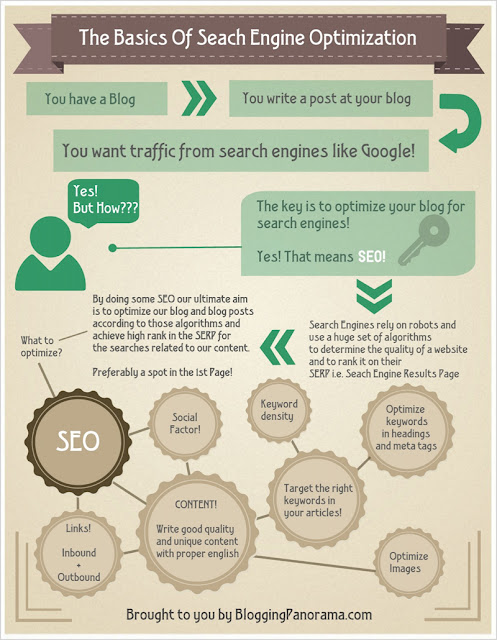SEO is an ever changing concept.
Today, as far as SEO is concerned, the importance of content has increased and the importance of keywords and other things are tending to decrease.
But even after all those Penguin and Panda updates by Google and after all those improvements in its algorithms, any experienced SEO consultant or blogger would agree that even today the most important factor for SEO is - keyword research.
Keywords are still the most important factor around which the concept is SEO is based.
So if you are not utilizing the real value of 'best' keywords for your articles, you are missing a lot of SEO right from the beginning.
This article is targeted for both beginners as well as intermediates. So first we will look at the meaning of keyword research and the idea behind it. Second, I will give you the chance to peep into my secrets of keyword research that I use to get my blog posts rank high on Google's (and other search engine's too!) search engine results page.
And third ... is a bonus for all of you. At the end of this post, you can get another tutorial which will help you achieve something more out of your SEO efforts.
But don't scroll down to the bonus now! Read this entire post to learn the secrets to get your blog posts on top of the SERPs by utilizing the maximum out of keyword research.
So What is Keyword Research?
I had explained in my previous post that search engines rely on algorithms to determine the key points of your content and to decide the topic about which you have written.
These key points are your keywords.
Now let us see the same thing from a common visitor's point of view.
Suppose someone wants to find a web page about 'Blogging Tips'. So what does he do? He heads towards a search engine and enters those 2 words in the search field. Now all the relevant web pages with the content related to 'blogging tips' will be shown.
So here 'blogging tips' are the key points in the content of those web pages shown in the results page.
So here 'blogging tips' is the keyword!
Now suppose a web page is better optimized for the keyword - 'Blog Tips'. So he would lose rank (and traffic) for the previous keyword. Now what if 'Blog Tips' is a more searched term than 'Blogging Tips'?
The second web page would get more traffic?
But what if there are thousands of top blogs optimized for 'Blog Tips' and they secure the first 2-3 pages in Google? If would be too difficult for you to get ahead of them!
In short there are 2 things that define keyword research - Traffic level and competition level.
What do you want?
The maximum traffic and the least competition, isn't it?
That is what keyword research is all about! Even for the same content, there are different combinations of keyword phrases and all those combinations have different search levels and competition levels.
Keyword research is the art of finding out the keyword phrase related to your content with the maximum traffic potential and the least competition!
I have already explained this thing a lot of times in this post that you would be researching for the keyword phrase with the maximum traffic potential and least competition.
These key points are your keywords.
Now let us see the same thing from a common visitor's point of view.
Suppose someone wants to find a web page about 'Blogging Tips'. So what does he do? He heads towards a search engine and enters those 2 words in the search field. Now all the relevant web pages with the content related to 'blogging tips' will be shown.
So here 'blogging tips' are the key points in the content of those web pages shown in the results page.
So here 'blogging tips' is the keyword!
Now suppose a web page is better optimized for the keyword - 'Blog Tips'. So he would lose rank (and traffic) for the previous keyword. Now what if 'Blog Tips' is a more searched term than 'Blogging Tips'?
The second web page would get more traffic?
But what if there are thousands of top blogs optimized for 'Blog Tips' and they secure the first 2-3 pages in Google? If would be too difficult for you to get ahead of them!
In short there are 2 things that define keyword research - Traffic level and competition level.
What do you want?
The maximum traffic and the least competition, isn't it?
That is what keyword research is all about! Even for the same content, there are different combinations of keyword phrases and all those combinations have different search levels and competition levels.
Keyword research is the art of finding out the keyword phrase related to your content with the maximum traffic potential and the least competition!
What Can You Achieve With These Keywords?
Someone search for that keyword phrase on a search engine. That person gets to see lakhs of results.
What differentiates the top few with the last few? The top results have the best content full of useful information and... has... proper SEO...when it comes to keyword.
The top sites are said to be ranking high for their desired keyword phrase.
Got it?
So you need to choose the best keyword phrase and optimize your post for it (Remember the maximum traffic and least competition part). The choosing part is known as - keyword research.
How to do this? We will see later on. Before that, let us discuss what one can achieve with keyword research.
You must have got an idea yourself too, isn't it?
If not, think this way - You are writing about suppose 'how to make money', and you know too many people search for it everyday, now what would happen if you get on first page of Google for that keyword phrase? Large traffic isn't it?
So what would you get by mastering over keyword research? High rank on search engines for your targeted keywords, that directly means traffic that can be converted into conversions and sales for you!
No need to explain any further I guess!
Basic Idea Behind Keyword Research And SEO
Below are the things you would be doing with keyword research in order to get high rank in SERPs.
You are going to write a blog post - You research for the best keyword phrase for your content (Maximum traffic and least competition) - You create your useful content according around that keyword phrase - You optimize some special areas with your keyword phrase.
Now let us see how!
How To Do The Research Part In Keyword Research
I have already explained this thing a lot of times in this post that you would be researching for the keyword phrase with the maximum traffic potential and least competition.
Now let us get deep into the method.
There are some free as well as some paid tools that can be used for keyword researching.
The tool that I primarily use is the free tool- Google Adwords Keyword Tool
This tool is easy to use, free and accurate.
Now let us try to find out the best keyword phrase for an example of a blog post about some methods for making money online using blogs.
Follow the screenshot below:
Enter all your keyword thoughts in the given box and make sure to select 'Exact' in the 'Match Types' section on the left side of the page. Hit the search button and you will get the analysis of your chosen keywords as shown in the screenshot.
Check that 'make money' keyword has a lot of traffic! 33,100 global searches! Nice, isn't it?
Wrong. See that I have encircled the word 'High' which shows that it has a high competition that means a lot of web sites are competing for that keyword phrase. And as I said before, your target must be to find the least competing keyword with the maximum traffic potential.
So moving ahead, see the other two keyword examples, they have medium competition and have some nice search levels. Finding a low competition keyword might be difficult and especially for this example here, I couldn't find any good low competition keyword myself!
Now see that both these phrases have the same meaning and sense, still they differ in traffic levels. The 3rd keyword has a greater search than the 2nd one, with the same competition.
So that means you have got a better phrase to focus on, got it?
Exactly. Keyword research is all about finding the best available phrase for your content.
There is one factor that would help you in finding low competition keyword and that is - Long Tail Keywords.
What exactly are Long Tail Keywords?
Long tail keywords are a combination of a somewhat larger number of words that form a profitable keyword phrase. Check the screenshot below for an example:
See the two keyword phrases in the screenshot. The second one is actually a more targeted one and at the same time has low competition and see the global searches! 14,800!
So it would be easier to rank yourself for the keyword phrase 'How To Make Money On YouTube' rather than just 'How To Make Money' and at the same time, you would get good targeted (that means interested or engaging) traffic who seriously want to make money from YouTube and not by other methods.
That is the meaning and importance of 'long tail keywords'.
In this example, I had used Adwords Keyword Tool for the keyword research work, which is a free tool. Apart from this there are many paid keyword research tools which make your work a lot easier and some of the paid tools have a long list of features that are completely out of scope with Adwords keyword tool.
One such professional keyword research tool is - Market Samurai.
First of all - Have I used it?
Yes.
Just few days back I had started using it's trial version and I am happy with the results. Also there are many features which make me think of buying the full version. But still I use Adwords as the primary tool for my research work.
Second - How is it better than Adwords and should you buy it?
In a lot of ways, Market Samurai is better than Adwords because it has some extra features and it makes your work a lot easier by doing all the finding work itself.
I won't tell you if you should consider purchasing it or not because it depends on your skills and your comfort. There are some people you exceptionally like this tool and there are also some who have a hard time understanding this tool. So you should consider trying out a trial version to test it and if you are happy with its results, then and only then buy the full version.
Now let us get back to keyword research.
In this example, I had used Adwords Keyword Tool for the keyword research work, which is a free tool. Apart from this there are many paid keyword research tools which make your work a lot easier and some of the paid tools have a long list of features that are completely out of scope with Adwords keyword tool.
One such professional keyword research tool is - Market Samurai.
First of all - Have I used it?
Yes.
Just few days back I had started using it's trial version and I am happy with the results. Also there are many features which make me think of buying the full version. But still I use Adwords as the primary tool for my research work.
Second - How is it better than Adwords and should you buy it?
In a lot of ways, Market Samurai is better than Adwords because it has some extra features and it makes your work a lot easier by doing all the finding work itself.
I won't tell you if you should consider purchasing it or not because it depends on your skills and your comfort. There are some people you exceptionally like this tool and there are also some who have a hard time understanding this tool. So you should consider trying out a trial version to test it and if you are happy with its results, then and only then buy the full version.
Now let us get back to keyword research.
Now you know that you have got to work on finding long tail keywords with low competition and high traffic potential. Then you would have to optimize your content according to that keyword phrase.
How?
Let us see.
Optimizing Your Content For Your Desired Keyword Phrase
In my previous post (read here), I had written about what is SEO and how to implement it.
The same points are application here too.
The same points are application here too.
- You need to create a decent keyword density (about 2-3%) along with using the exact keyword phrase 2-3 times in the content.
- Place your keywords once in the first 100 words and once in the last 100 words.
- Bold, underline and italic your keyword parts once or twice in your content.
- Use your keyword phrase in the title and URL.
- Use your keyword phrase in H1, H2 etc heading tags
- Optimize alt and title tags in images with your keyword
Bonus - SEO Checklist
Here is the bonus I had promised to give you!
Its a checklist for not just optimizing your posts, but for publishing a master content. This is the checklist I personally follow and I am sure this would help you if you struggling in terms of SEO.
So go ahead and download this checklist by doing a small favor to me. The favor is of subscribing to my blog's newsletter which would let you get more blogging tips and SEO guides right into your inbox.
A healthy deal, isn't it?
So subscribe now and download the SEO checklist right now!
What did you learn here?
People would say that today the importance of keyword research, those professional keyword tools and even SEO is decreasing. But according to my thinking and my experiments, the whole idea of SEO would never die because however intelligent those search engine robots become, they are still robots and not humans.
So ever after all those algorithm improvements, there would still be the need to optimize web pages for them, to make their work easier and keyword research is the base for SEO, not just the base but also the skill, which once mastered can help you achieve success in the world of search engines.
Keyword research, even though is the most important factor is SEO, still it is something a very new blogger won't be able to understand easily and properly.
If you are one of the beginners and did not get the points here, then don't worry. Day by day you would get to learn everything from your experiences in this blogging world. And do remember that you can comment your questions and doubts anytime!
For experts who read this post to get something unique out of it, let me know in the comments if I did a satisfactory job or not.
Finally I would like to ask you a question - What do you think about keyword research and how important is it according to you?
Do comment and share your thoughts!
Image courtesy of Kromkrathhog/FreeDigitalPhotos.net
Image courtesy of Kromkrathhog/FreeDigitalPhotos.net



































